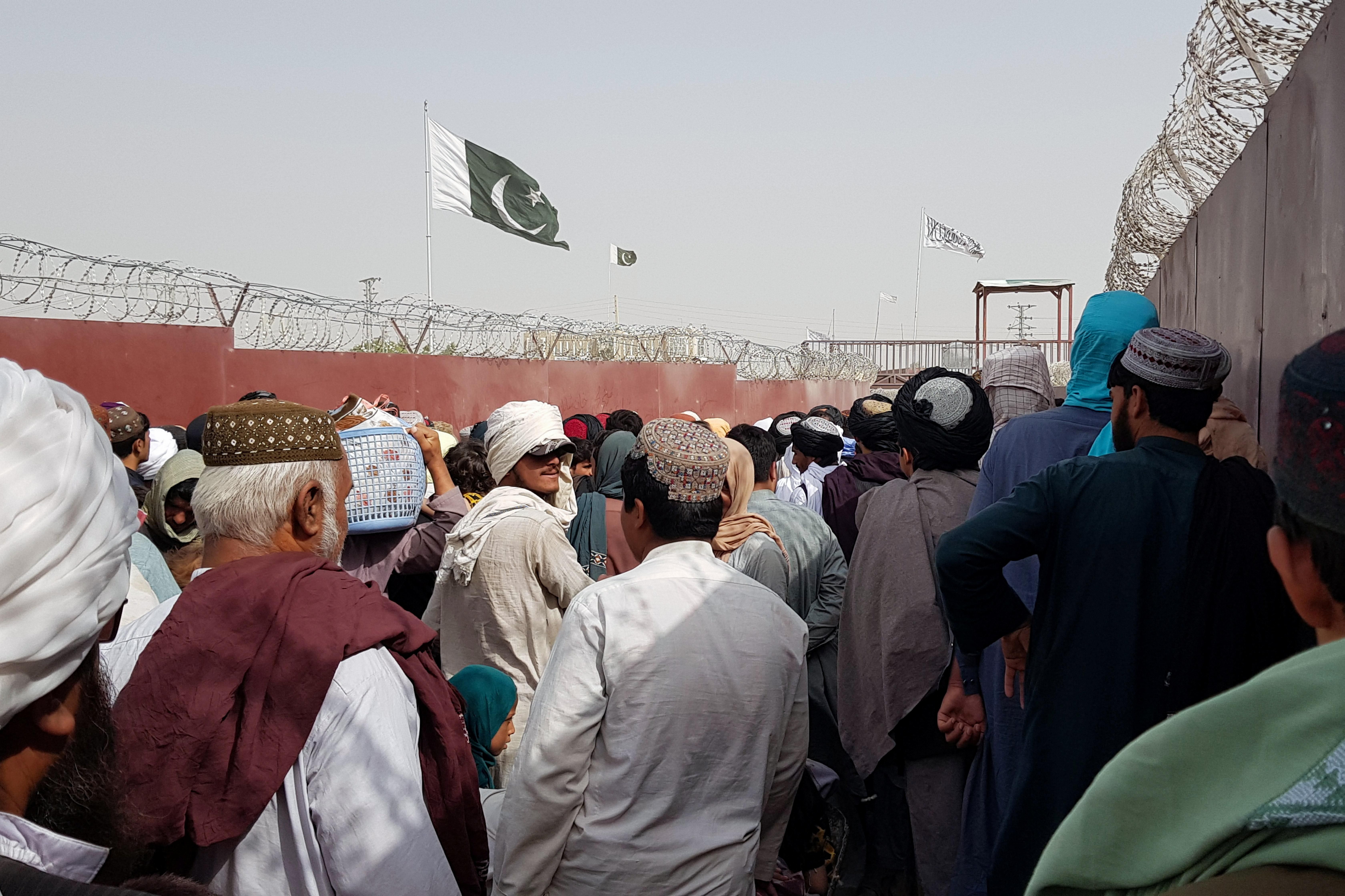As the Taliban complete their breathtakingly rapid campaign to retake control of Afghanistan and thousands of people swarm Kabul's airport in a desperate bid to flee the country, the world is watching with bated breath to see what happens next. The US is primarily preoccupied at the moment with completing the withdrawal that set off the Taliban offensive and extracting all its citizens safely, while other countries in the region are already looking ahead and worrying that an Afghanistan led by the Taliban could once again become a staging ground for actions by Islamic terrorists.
Pakistan, however, is much less concerned, given its history of close ties with the Taliban. Eurasia Group analyst Akhil Bery explains that Pakistan stands to benefit from the Taliban's recapture of Afghanistan, though it also poses some risks.
How does Pakistan stand to benefit?
Pakistan's national security establishment, especially the highly influential Inter-Services Intelligence, is delighted to see the Taliban return to power. The ISI has a long history of supporting the group, first in its fight against the Soviet occupation in the 1980s, and then more recently in its insurgency against the US-backed Afghan government. Though Pakistan publicly claimed it was working together with the US to achieve its goals in the region — and receiving copious amounts of US aid for it — in reality it was also supporting the Taliban. Back in 2014, General Hamid Gul, the former head of the ISI, quipped: "When history is written, it will be stated that the ISI defeated the Soviet Union in Afghanistan with the help of America. Then there will be another sentence. The ISI, with the help of America, defeated America."
Moreover, Pakistan sees the Taliban takeover as a win against arch-rival India, which was deeply invested in supporting the civilian government in Afghanistan but has been left out of most discussions between the Taliban and various world powers on what Afghanistan's future should look like.
What are the risks for Pakistan?
The return of the Taliban does also present some challenges, however. While it is widely accepted that Pakistan's military has a degree of control over the Islamic group, that control maybe waning; many in the Taliban have grown weary of Pakistan's efforts to exert its influence and seek political and financial independence. In addition, when the Taliban were last in power, Pakistan was the last country to recognize them as a legitimate government. But following its recent success in firmly establishing its control of the country, the Taliban will have a broader range of partners, limiting Pakistan's sway. Furthermore, Afghanistan could once again become a haven for the Tehreek-e-Taliban Pakistan, a radical Islamic group that has conducted terrorist attacks in Pakistan, for example when authorities have tried to exert their control over remote tribal regions that serve as a refuge for militants.
How will Pakistan's relationship with the US evolve?
Relations have been strained in recent years. Former President Trump has attacked Pakistan on Twitter, accusing it of "giving us nothing but lies & deceit, thinking our leaders as fools." Yet, there were efforts at rapprochement — for example, Prime Minister Imran Khan visited Washington in July 2019, and then-Secretary of Commerce Wilbur Ross visited Islamabad in 2020 to encourage more trade between the two countries. But those efforts have not continued under the Biden administration, which has been a source of frustration for Pakistani authorities desirous of refocusing the bilateral relationship more on trade and economic development. Going forward, the US will continue to pressure Pakistan (likely through aid programs and multilateral agencies) to ensure that Afghanistan is not used to conduct terrorist activities. The US is likely to continue viewing its relationship with Pakistan through a counterterrorism prism.
How do the recent developments affect Pakistan's relations with other countries in the region?
The return of the Taliban possibly presents the biggest challenges for India and China. India is worried because the last time the Taliban were in power, they sheltered pro-Pakistani militants, including those who hijacked an Indian Airlines flight in 1999. Furthermore, India is concerned that Pakistan, emboldened by its success in Afghanistan, may start to push back more aggressively in the two countries' numerous areas of dispute. Though there have been some attempts at rapprochement with Pakistan lately, India faces an increasingly hostile neighborhood.
China, meanwhile, is worried that Afghanistan will again become a haven for a Uyghur extremist group known as the East Turkestan Islamic Movement, which Beijing believes could launch attacks on China in response to the widespread repression of Uighurs in Xinjiang. A joint China-Pakistan investigation found that the bus bombing in Pakistan on 14 July that killed nine Chinese engineers was a joint operation by the TTP and the ETIM; China will likely pressure both Pakistan and the Taliban to make sure its interests are not harmed.
